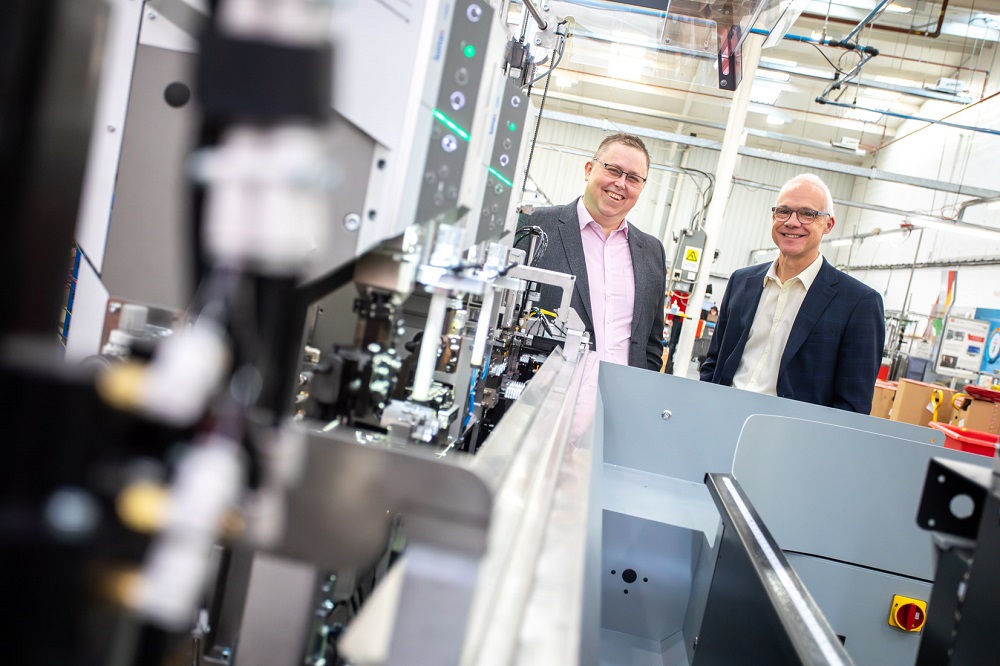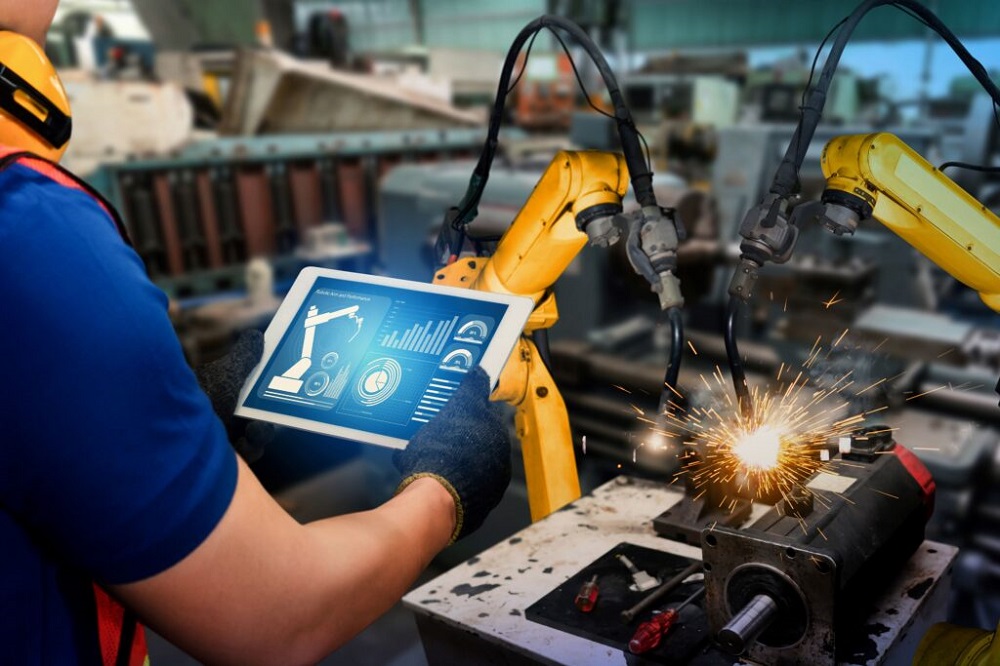Global manufacturing is facing a growing productivity paradox. While manufacturers are racing to capture the knowledge of retiring workers before they leave, applying that know-how with new technologies, including robotics, is becoming challenging because of a widening skills gap.Louis Columbus, senior industry marketing manager at Delmia, delves deeper into the ever-growing skills gap in manufacturing and how robotics training could be the catalyst for change.
Nowhere is today’s skills gap more apparent than on the shop floor, where workflows, often decades old, require streamlining to keep manufacturers competitive. Robotics is helping manufacturers meet that challenge worldwide. It is important to keep robotics in context, however, and see it as an enabling technology of a broader knowledge network every manufacturer needs to cultivate and grow if they are going to survive and thrive in the 21st century.
The skills gap between worker capabilities and what manufacturers need to run their operations is growing. Gaps are the widest in the technology areas that can significantly improve shop-floor accuracy, speed and quality, with robotics being one of the most in-demand skills today. Globally, the World Economic Forum predicts a shortage of over 7 million skilled manufacturing workers by 2030.
Several forces are driving this talent shortage. Up to 25% of the manufacturing workforce will retire in the next decade, draining decades of expertise. At the same time, the industry is undergoing rapid digital transformation through technologies, including AI, predictive analytics and collaborative robots (cobots). This results in a mismatch, where just 30% of front-line manufacturing workers have skills that meet the evolving needs of manufacturing, with robotics being the most in-demand yet least available skill.
The majority of manufacturers, 83%, are struggling to attract and retain a quality workforce, according to a Deloitte and Manufacturing Institute study. Some 45% of manufacturers turned down opportunities due to a lack of workers. A recent CNN segment ‘Made in America is back, leaving US factories scrambling to find workers’, explained there are 800,000 openings despite a hiring binge last year. CNN interviewed Jay Timmons, CEO of the National Association of Manufacturers, who said: “I think we’re in uncharted territory. For every 100 job openings in the sector, we only have 60 people looking. I think it’ll take quite a while to fill that pipeline.”
This is reason why targeted robotics training programmes are becoming sopopular. Forward-thinking manufacturers are offering their employees the opportunity to learn robotics techniques and maintenance to further their careers. One plastics manufacturer offers unlimitedtuition reimbursement for robotics training and a career path into robotics operations or maintenance, depending on the preference of employees.
The strategy is working. The plastics manufacturer runs three shifts and can scale up to run on weekends for rush jobs, providingovertime pay and still achieving profitable margins on orders. By offering short-notice production runs over the weekend – made more efficient with robotics – the plastics manufacturer is getting new customers as competing manufacturers in the area cannot scale that fast to support last-minute orders.
Competing with e-commerce, online retailing and logistics providers who offer 30-50% higher per-hour pay rates for the same skills needed on shop floors is making robotics training even more of a priority. Focused training initiatives that integrate robotics and automation skills show the potential to close the manufacturing skills gap. Employees trained in programming, operating and maintaining robotics become better equipped for in-demand roles later in their careers.
For example: Germany’s advanced manufacturing sector partly attributes its competitive edge to robust apprenticeship programmes that develop the robotics and technical abilities of workers from an early age. Similarly, on-site training helps existing employees re-skill for automated production jobs. Boeing offers virtual reality-based courses to upskill factory workers on advanced manufacturing robots and software. Studies find that these retraining programmes can improve worker productivity on automated tasks by over 70%.
Notably, developing in-house robotics skills does not require massive investments. Companies without dedicated training facilities can still build workforce expertise in operating and optimising robotics.
Consider the following approaches, which are working for small and mid-tier manufacturers: popular options for forward-thinking manufacturers include FANUC Handling Tool Operator Certification and Yaskawa Motoman Robot Operator Certification.
Covering employee costs to earn these credentials expands skills in key programming areas like motion control, maintenance, vision systems and work cell integration. Employees become certified to code robots used on your shop floors efficiently.
Beyond certifications, manufacturers are wise to fully fund continuous skills updating through robot OEM training courses and online programmes. A small annual investment here can significantly boost programming productivity. Manufacturers can explore potential partnerships with local technical schools, community colleges and universities to utilise their robotics labs and STEM programmes for affordable hands-on training.
By supporting robotics certifications and ongoing education, manufacturers amplify workforce capabilities and flexibility to maximise the value of automation investments.
Manufacturing leaders recognise that re-skilling their workforce represents the most effective way to overcome the skills gap. By providing production team members access to hands-on robotics education, manufacturers can unlock more value from investments in automation. Manufacturers creating defined career pathways also gain loyal, highly capable workforce.
In summary, studies show that focused training programmes integrating robotics skills can improve worker productivity on automated tasks by over 70%. Employees trained in programming, operating and maintaining robotics equipment become better equipped for in-demand roles. With the widening manufacturing skills gap projected to leave over 2 million jobs unfilled in the next decade, building a robotics-ready workforce is a strategic imperative for manufacturers worldwide.
For further information www.3ds.com



















